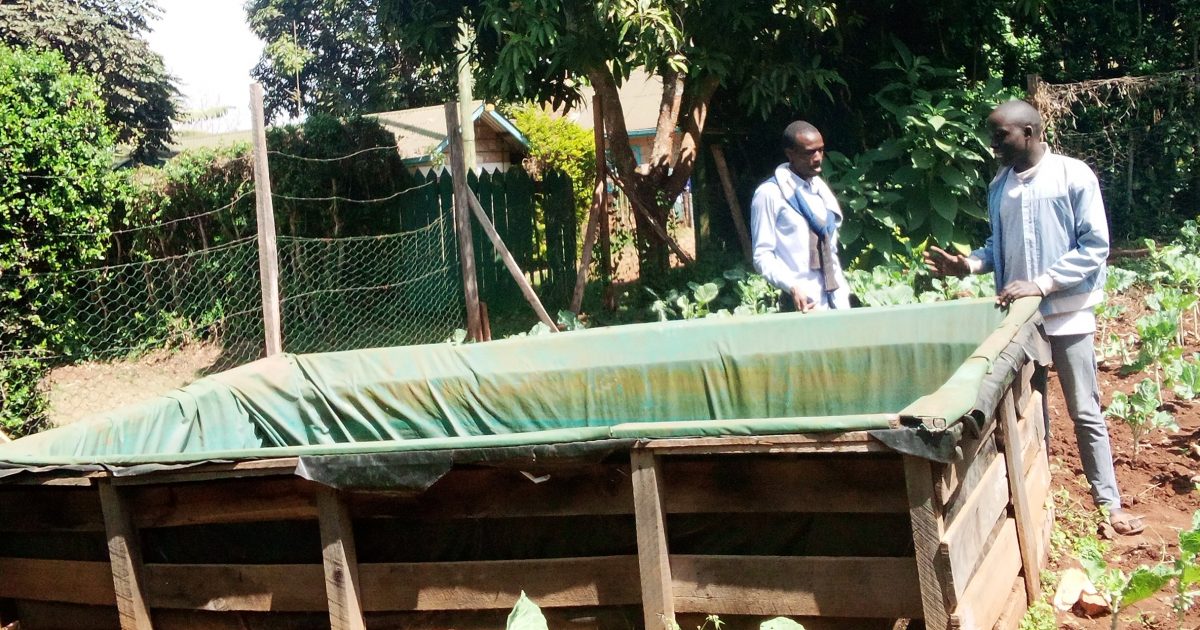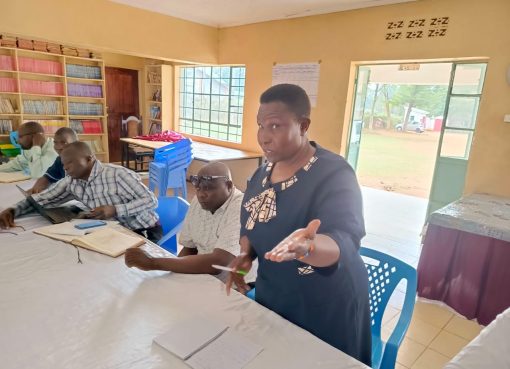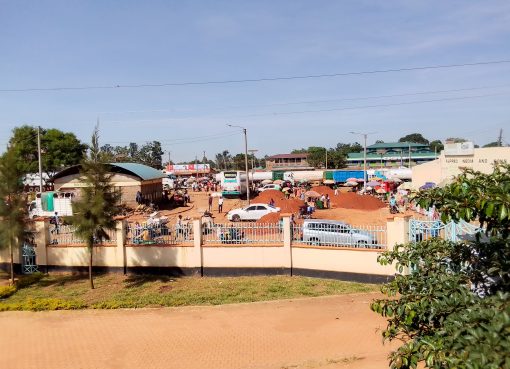Ken Mwenda, a 22-year-old university student pursuing a diploma in applied agriculture at Meru University of Science And Technology is flourishing in agriculture amidst cries of joblessness among youths.
Mwenda who began fish farming and rabbit rearing in the wake of the Covid -19 pandemic at his home in Kianjai, Tigania West Sub-county, has a reason to smile as his venture is capable of paying for his school fees, upkeep and also help in supporting his family.
He says he ventured into fish farming after learning institutions were closed to stem the spread of coronavirus with Sh1, 000 as his initial capital.
“It did not cost much since I dug the pond by myself, fetched the fingerlings from a nearby river which also supplies the water used in the fish pond,” said Mwenda citing that the only money he spent is the Sh1, 000 used for buying the plastic fishpond cover.
Mwenda says that he makes Sh2, 000 from selling his fish every Saturday which is the only day he is free, with one kilogram of catfish and tilapia selling at Sh300 and Sh400 respectively.
His main consumers are his colleagues from Meru University of Science and Technology and his neighbours.
So far, out of his humble fish farming business, Mwenda has managed to buy a generator worth Sh20, 000 which has made it easier for him to pump water into the fish pond.
He has also taken up the responsibility of youth in agriculture ambassador, sensitizing young people on the importance of farming instead of depending on white collar jobs and has formed a group of 15 youth fish farmers in Kianjai.
Mwenda however recounts several challenges facing his venture one of them being difficulty in access to quality fingerlings, expensive pellets where one kilogram goes for Sh140 and his fish feeds on a bag worth Sh1, 500 in about two weeks.
He also faces a challenge of not being able to control birds eating his fingerlings.
Being a student, Mwenda also lacks sufficient time to concentrate on farming where he would be able to expand his fish farm and income too if he had enough time.
To do away with having to buy expensive pellets to feed his fish, Mwenda intends to embark on the rearing black soldier flies which would produce maggots known to have high nutrients for the fishes.
He has called upon the government to ensure that agricultural extension officers were available on the ground to ensure that farmers get professional advice when they need it.
Mwenda added that the government should invest in youth programmes in agriculture and subsidize the price of farm inputs to make farming affordable and profitable to youths intending to venture into agri-business.
In rabbit keeping, Mwenda has also ventured into rabbit keeping, beginning with two which after 3 months reproduced to 15, and later bought another four.
He says after birth, the rabbits take six months to start reproducing and in a span of one year, he had a total of 38 rabbits in his hatch.
The biggest of his rabbits is 3kg, which is sold at Sh1, 500; this means if he decides to sell 10 of his rabbits, he is assured of Sh15, 000.
He says rabbit rearing is affordable since in two weeks, he spends Sh270 buying rabbit pellets and Sh200 in buying a bundle of hay.
Mwenda adds that selling his rabbits is easy since he has a ready market from clients who value quality white meat.
The only heavy cost he incurred in rabbit keeping is in the construction of the hatch which cost him Sh5, 000.
His message to fellow youths is that agriculture is good and it also pays well.
By Brenda Gakii and Dickson Mwiti





